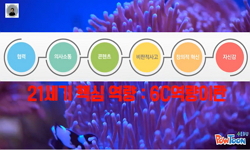This paper aims to examine the roles and significance of fieldwork for responding to the challenges and opportunities of the 21st century skills, and to present strategies to vitalize geographical fieldwork in school curriculum. Fieldwork has been a u...
http://chineseinput.net/에서 pinyin(병음)방식으로 중국어를 변환할 수 있습니다.
변환된 중국어를 복사하여 사용하시면 됩니다.
- 中文 을 입력하시려면 zhongwen을 입력하시고 space를누르시면됩니다.
- 北京 을 입력하시려면 beijing을 입력하시고 space를 누르시면 됩니다.

21세기 역량 개발을 위한 야외조사활동의 역할과 과제 = The Roles and Challenges of Geography Fieldwork for the 21st Century Skills
한글로보기https://www.riss.kr/link?id=A101805037
- 저자
- 발행기관
- 학술지명
- 권호사항
-
발행연도
2016
-
작성언어
-
- 주제어
-
KDC
900
-
등재정보
KCI등재
-
자료형태
학술저널
-
수록면
99-117(19쪽)
- DOI식별코드
- 제공처
-
0
상세조회 -
0
다운로드
부가정보
다국어 초록 (Multilingual Abstract)
This paper aims to examine the roles and significance of fieldwork for responding to the challenges and opportunities of the 21st century skills, and to present strategies to vitalize geographical fieldwork in school curriculum. Fieldwork has been a unique teaching and learning method for geographical education as well as an essential research method for geography as a discipline. Geography fieldwork enables students to gain geographical knowledge and understanding through direct engagement with the real world, and to develop the skills necessary for field research. It also offers an opportunity to develop problem-solving, self regulation, independence, communication, and collaboration skills which are central to the 21st century skills and are described in a number of 21st century skills projects (e.g. ATC21S). The three key elements achieving effective fieldwork design are identified: inquiry-based, critical geography and ICT (i.e. geospatial technologies). The idea of inquiry-based geography fieldwork suits creative experiential activities, a ``free learning semester``, and annual events such as a Geography Olympiad focusing on local investigation. Successful fieldwork will improve the importance of geography in a school curriculum as well as enhance teaching and learning in geography classrooms.
동일학술지(권/호) 다른 논문
-
2015 개정 사회과 교육과정에서 지리교육의 정체성과 대응
- 한국지리환경교육학회
- 박철웅 ( Chul Woong Park )
- 2016
- KCI등재
-
2015 개정 초등 사회과 지리 영역 교육과정 개발에 대한 반성적 고찰
- 한국지리환경교육학회
- 이간용 ( Khan Yong Lee )
- 2016
- KCI등재
-
2015 개정 중학교 사회과교육과정개발 과정의 의사결정 구조에 대한 비판적 고찰
- 한국지리환경교육학회
- 박선미 ( Sunmee Park )
- 2016
- KCI등재
-
- 한국지리환경교육학회
- 조철기 ( Chul Ki Cho )
- 2016
- KCI등재




 KCI
KCI KISS
KISS


